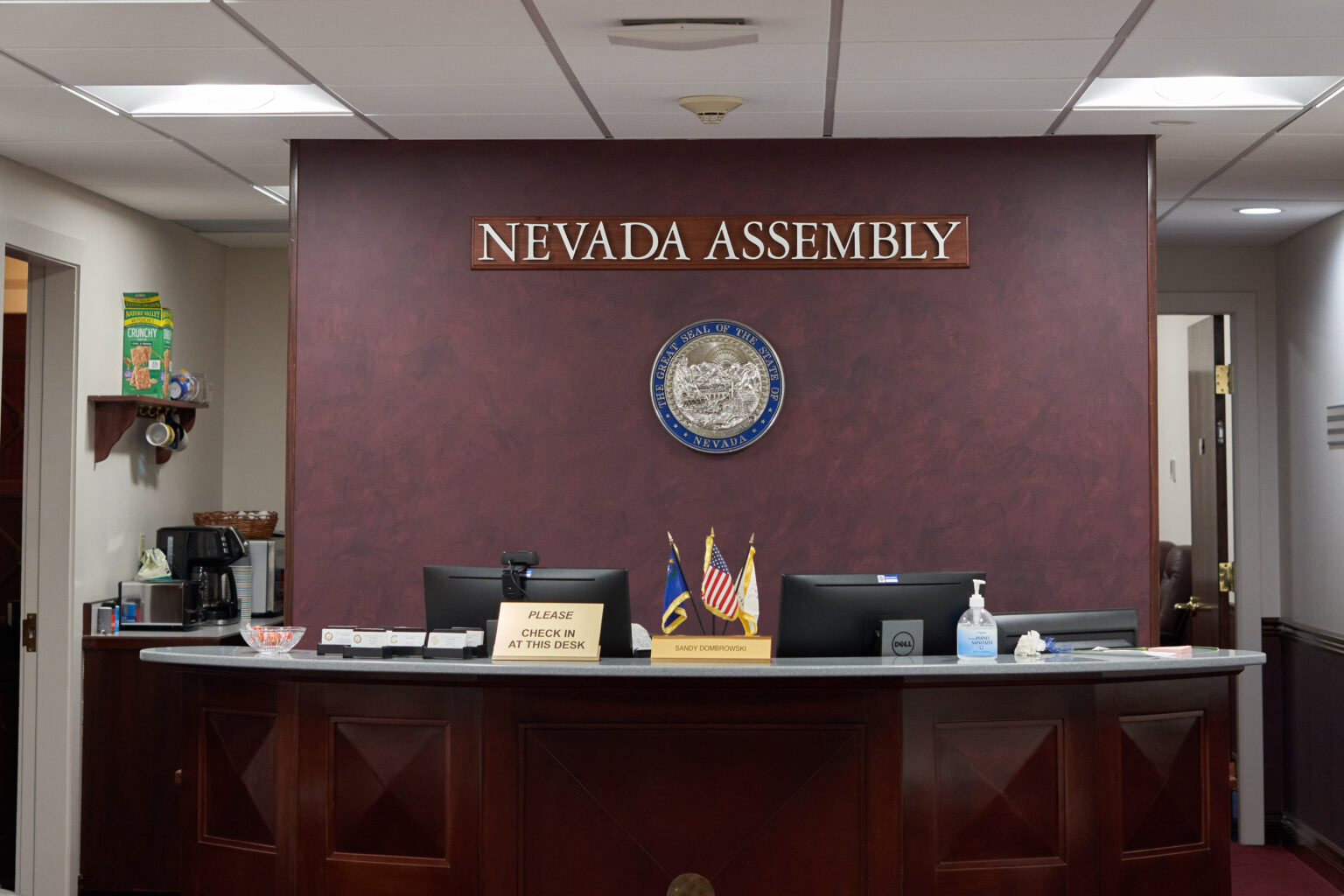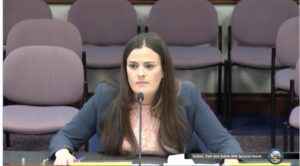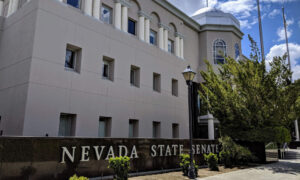5:51
News Story
More vetoes roll in as governor, legislative leaders continue budget talks behind closed doors
Friday came and went at the Nevada State Legislature with no public signs of progress made on the two outstanding budget bills — one of which was vetoed Thursday, one of which is stalled in the senate, and both of which face mounting pressure to be passed and signed by the governor before the session ends Monday.
But lobbyists had much to stew over as a slew of Gov. Joe Lombardo’s veto messages became public.
As of Friday afternoon, Lombardo’s veto count was up to 24. At a midday press conference, one lobbyist noted that the first-term governor appears to be on track to have the highest number of vetoes during a single session. That record is currently held by Gov. Jim Gibbons, who vetoed 48 bills in 2009.
Added to Lombardo’s growing list of vetoed bills were legislation related to health care subsidies for substitute teachers, rail worker safety, and fluorescent light bulbs.
No subsidies for subs
Assembly Bill 282 would have required school districts to provide a $450 per month health care subsidy to substitute teachers who worked for 30 or more consecutive days.
The bill received bipartisan support in both houses of the legislature — a factor Lombardo has not seemed to influence his approach to vetoes.
Lombardo in his veto message wrote that addressing compensation for substitute teachers “is essential to keeping them coming back to the classroom. However, these are still temporary employees.”
Substitute teachers are typically paid per day and not offered benefits. Some long-term substitute teachers work in the same classroom for an entire school year, filling a vacancy that could not (or was not) filled by a fully licensed educator.
Lombardo wrote he took issue with numerous components of the bill, including what he said was an “overly broad” definition of full-time substitute teacher and “technical issues” that would result in implementation issues.
“There is no real statewide plan for filling classroom vacancies, and more and more substitute teachers are realizing they can make a better living as rideshare drivers or doing food deliveries than they can being substitute teachers,” said Athar Haseebullah, executive director of ACLU of Nevada, which advocated for the bill. “Our teacher shortage will exacerbate with no plan to fix it, and this is another example of the lack of respect for a natural pipeline of educators to stabilize our receding teacher workforce.”
Railroad safety leg derailed
Assembly Bill 456 was a railway safety bill. It would have prohibited the operation of commercial trains more than 7,500 feet long and established other requirements designed to reduce the likelihood of Nevada experiencing a major railway disaster the likes of East Palestine, Ohio earlier this year.
Lombardo in his veto message called it “another policy overreach from the Legislature” and questioned the constitutionality of the bill, referencing a U.S. Supreme Court decision commonly cited by railroad companies when opposing such measures across the country.
The Nevada state legislative board of the International Association of Sheet Metal, Air, Rail and Transportation (SMART Nevada) and AFL-CIO condemned Lombardo for the veto.
“With this legislation, Nevada could have been a leader in railroad safety; now, we run the risk of becoming a national headline in the future,” said AFL-CIO Executive Secretary-Treasurer Susie Martinez.
County gas tax on fumes
Assembly Bill 359 would have allowed Clark County to increase the gas tax by a two-thirds majority of the county commission beginning in 2027. Existing law allows for a county-implemented gas tax to be increased by a simple majority of voters via a general election ballot measure.
Lombardo in his veto message wrote that the issue of ensuring well-maintained roads — what the tax in question funds — is important but that the decision, “which impacts household budgets every day, is most appropriately rendered by the voters.”
Lombardo also suggested the bill was inequitable because it placed additional burden on gas-powered vehicles versus fuel-efficient ones.
Lights off for fluorescent lamp ban
Assembly Bill 144 would have banned the sale of compact fluorescent lamps and linear fluorescent lamps beginning in 2025 and 2026, respectively. Lombardo in his veto message called it “yet another example of an unnecessary, strict regulation that eliminates consumer choice without any immediate need to do so.”
Lombardo’s veto messages are available on the governor’s website and the legislative website.
Our stories may be republished online or in print under Creative Commons license CC BY-NC-ND 4.0. We ask that you edit only for style or to shorten, provide proper attribution and link to our website. AP and Getty images may not be republished. Please see our republishing guidelines for use of any other photos and graphics.




